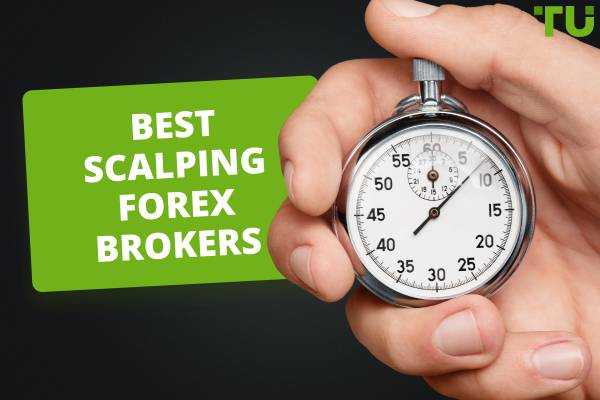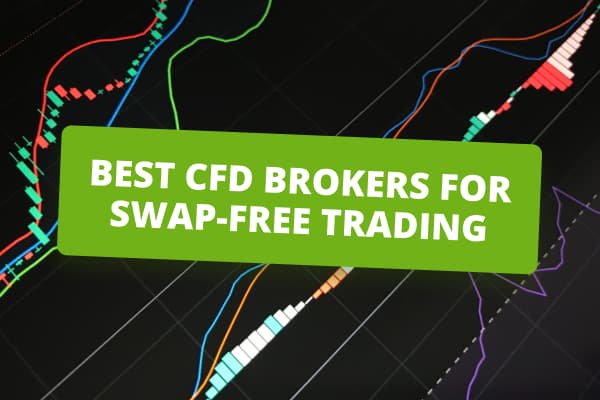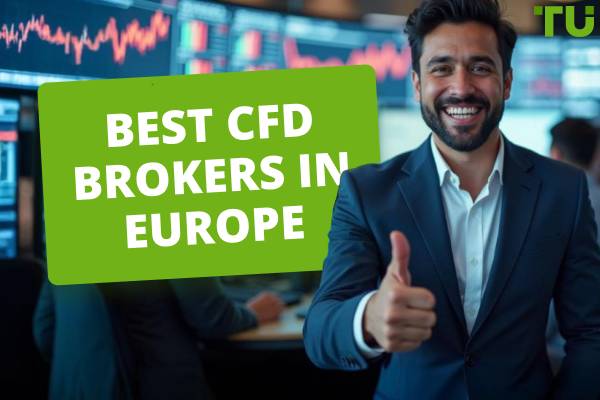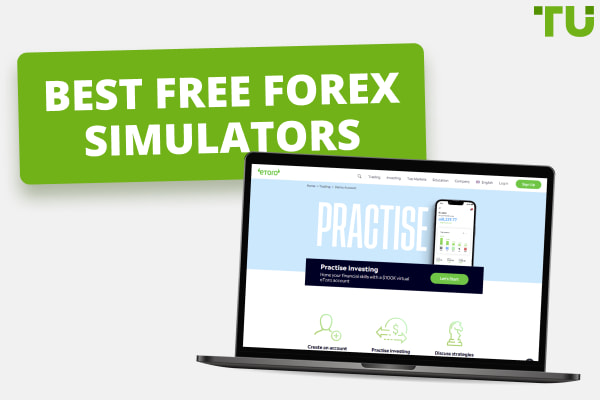Best No Dealing Desk Brokers 2025

The best NDD Forex broker - Plus500
Top NDD Forex Brokers:
-
Plus500 - Best premium client support (personal manager, exclusive analysis, webinars)
-
Pepperstone - Best for scalping strategies (spread from 0 pips)
-
OANDA - Best for trading with advanced technical analysis tools (TradingView charts support)
-
FOREX.com - Diverse range of tradable assets (80+ currency pairs)
-
Interactive Brokers - Best broker for international investors (assets from 33 countries, 150+ markets)
-
IG Markets - Favorable Forex trading conditions (0 fees, avg. EUR/USD spread - 0.8)
In the dynamic landscape of Forex trading, selecting the right broker is paramount for success. The advent of Non-Dealing Desk (NDD) brokers has revolutionized the industry, offering traders direct access to the interbank market without intermediary intervention. As we delve into the intricacies of NDD brokerage, our TU experts aim to unravel the pros and cons of these brokers in 2025.
Best NDD brokers in the world
Plus500
Plus500 is an international fintech holding that offers CFD and options trading worldwide through its network of branches, as well as futures trading in the U.S. The company was established in 2008 in the Israel. It is regulated by the FCA, as well as by 9 financial supervisory authorities in other countries, such as CySEC (Cyprus), ASIC (Australia), MAS (Singapore), FSCA (South Africa), among others. Plus500 is listed on the London Stock Exchange (ticker: PLUS) and is part of the companies that make up the FTSE 250 stock index. Plus500 is a reliable intermediary for accessing financial markets, used by over 25 million traders worldwide.
👍 Pros
• Multi-regulation — licensed in 10 countries;
• Wide range of trading instruments — over 2800;
• Highly functional trading platforms — browser and mobile versions;
• Transparent pricing model — Spreads and Additional fees;
• Automatic adjustment of trading conditions to meet regulatory requirements;
• Provision of educational content, free analytics, and demo accounts;
• Customizable trading alerts — both on the platform and through external communication channels.
👎 Cons
• Lack of Micro or Cent-type accounts in its account lineup, which allow trading with minimal risks and investments;
• The Plus500 platform does not support automated trading;
• Some popular trader strategies are prohibited.
Pepperstone
Pepperstone (Pepperstone.com) was founded in 2010 in Melbourne, Australia,
by professional traders who were not satisfied with the quality of services provided by most brokers. The founders
decided to avoid many of the disadvantages of competitors, including high commissions, delayed execution of orders,
etc. The founders therefore focused on improving the technical component. The company has set itself the goal of
changing the “rules of the game” and setting the bar high for online trading.
Today, Pepperstone offers clients all over the world some of the best technological solutions and favorable trading
conditions. The company also provides professional tools that help traders not only master the fine art of trading,
but also significantly increase trading efficiencies. In addition, Pepperstone’s platform is scrutinized by seven
regulatory authorities, including ASIC (Australian Securities and
Investments Commission, AFSL No.414530), FCA (UK Financial
Conduct Authority, 684312), DFSA
(F004356), BaFin (151148), CMA, SCB
(SIA-F217), and CySec (388/20). Moreover,
with Pepperstone, clients' assets are maintained in aggregated accounts with several major, global banking
institutions. These facts confirm the reliability of the company and guarantee the safety of the client's capital.
👍 Pros
• Attractive trading conditions;
• Fast order execution - 30 ms on average;
• 1,200+ trading instruments;
• Low fees; and
• No inactivity fee.
👎 Cons
• Support service works only 24/7;
• No cent account;
• Not available to US clients;
• Limited passive trading opportunities;
• Limited analytical materials available on the site. The only way to resolve this issue is to connect to trading signals;
• No news section; and
• Demo accounts can only trade for free for 60 days.
OANDA
The name OANDA is an acronym for “Olsen & Associates” or “Olsen AND Associates”. It is registered in the United States and provides its clients with a wide range of financial services in most countries of the world. The company was founded in 1996 and is currently regulated in four jurisdictions. The main regulator of the broker is the UK Financial Conduct Authority (FCA). Oanda Canada is licensed by IIROC. The company has several significant awards to its credit, including a victory in the category "Best Forex Trading Technologies" from the UK Forex Awards, "Best Trading Platform" from FX Week, as well as "Best Customer Service" from the US Foreign Exchange Report.
👍 Pros
• Minimum deposit from 1 dollar.
• A large selection of the most popular trading instruments.
• Several reliable and reputable financial regulators.
👎 Cons
• Inconvenient and poorly functioning site.
• Lack of cent accounts.
• Lack of bonus programs.
FOREX.com
Forex.com is a company owned by GAIN Capital Holdings, Inc. (NYSE: GCAP) and has earned a reputation as a reliable broker in the trading industry for its transparent work and high quality of services. The company cooperates with clients in 140 countries. The broker is registered in the Cayman Islands and supervised by CIMA (Certified Institute for Management Accountants). The license number is 25033. The parent company of the Forex.com broker is registered in England and Wales under the number 1761813 at the UK Companies House. It is licensed by one of the most reputable regulators in the world, FCA (No. 113942).
👍 Pros
• average rate of order execution is 0.04 ms;
• reliability is controlled by several regulators so customer funds are kept on separate accounts from the company's assets;
• attractive trading conditions are tight spreads on over 90 assets, including currency pairs and metals, and over 4,500 markets, including FX, indices, commodities, stocks, and cryptocurrencies.
👎 Cons
• poor quality of site optimization, little specifics in the descriptions of services, tabs at the top of the page do not work. To find the information you have to use a tab called "Sitemap";
• it is difficult to contact the support service due to its high workload;
• large fixed commission for withdrawing funds;
• high initial deposit, it starts from $1,000;
• there are few options for depositing and withdrawing funds, the terms rarely correspond to those stated.
Interactive Brokers
Interactive Brokers is among the best-known global online brokers. Based in the US, it has been operating since 1977. Interactive Brokers allows clients to trade products from 160 exchanges including stocks, option, currencies, bonds, funds and more from a single unified platform. The company is regulated by the US Securities and Exchange Commission (SEC), the US Financial Industry Regulatory Authority (FINRA), the UK Financial Regulatory Authority (FCA, 208159), and other international financial regulation commissions. Interactive Brokers has earned recognition as a top broker, garnering multiple awards and accolades from respected industry sources such as Barron's, Investopedia, Stockbrokers.com,and many others. Also, the broker is popular in other countries. Here you can read reviews of Interactive Brokers in Canada, Singapore, Australia, Hong Kong, Ireland.
👍 Pros
• extensive and free educational resources through the IBKR Campus;
• access to160markets in 36 countries and territories;
• trading in stocks, options, futures, currencies, bonds, funds and more from a single unified platform.
👎 Cons
• Support service does not work on Saturday;
IG Markets
IG Markets has been providing brokerage services for retail traders since 2014. It was established in 1974 in London to work with professional traders. It is a part of the IG Group with representative offices in 17 countries. IG Markets stocks are traded on the London Stock Exchange as a part of the FTSE 250 index. The broker is regulated by FCA (Financial Conduct Authority | the UK), CySec (Cyprus Securities and Exchange Commission), ASIC (Australian Securities and Investments Commission), BaFin (the Federal Financial Supervisory Authority | Germany), FINMA (Swiss Financial Market Supervisory Authority), and NFA (National Futures Association). The IG Group global representative office is supervised by BMA (the Bermuda Monetary Authority). The broker provides services of trading Forex and different CFDs through MetaTrader 4 and its in-house platforms for retail and professional traders.
👍 Pros
• Regulated activities and participation in compensation funds;
• No minimum deposit requirements when opening an account with the international division;
• Leverage is available for trading currencies and CFDs;
• Wide range of trading assets and markets;
• Fee rebates for new and active existing clients with large trading volumes;
• Floating spreads from 0.6 pips for retail Forex traders;
• Bonuses for new clients and partnership programs for different client categories.
👎 Cons
• The broker can reject opening accounts to traders with low capital or insufficient knowledge of derivatives trading;
• Deposits and withdrawals can’t be made with e-wallets, electronic payment systems, or cryptocurrencies;
• Trading conditions differ for various countries, so you have to look for the broker’s website in your country.
Pocket Option
PO TRADE BROKER caters to both Forex and binary options traders, offering a wide range of trading instruments, a copy trading service, and passive income opportunities.
Clients can trade CFDs on currencies, cryptocurrencies, stocks, indices, and commodities with spreads starting from 1.2 pips and no additional commissions per lot. Pocket Option's unique "My Safe" service offers up to 10% annual interest on unused account balances.
While the platform excels in serving active traders, its demo accounts and referral program also offer value to beginners. However, the lack of cent accounts and ECN options could be a drawback for certain professional traders.
👍 Pros
• MetaTrader provides for trading binary options and CFDs;
• A demo mode is available for all account types;
• Active, social, and algorithmic trading is available on MT4 and MT5 accounts;
• Spreads are from 1.2 pips for Forex and no fees per lot;
• Referral program for retail clients with rewards of up to 50%-80% of the referee’s income;
• “My Safe” service that provides for crediting 10% per annum on the account balance not involved in trading;
• Cash back and promo codes for binary option traders;
• 50% deposit bonus.
👎 Cons
• Real-time communication with operators is available upon funding the account.
Thinkorswim
TD Ameritrade’s Thinkorswim broker is a result of the unification of Thinkorswim and TD Ameritrade, the developers of the best platform for stock trading in the US. Its main focus is trading securities, the OTC securities market, spot instruments, and retail foreign exchange trading in the US. The company was nominated for: "Best Platforms and Tools", "Best Application for Traders", for being among the Top 5 in the ratings, "Best Innovative Developments", and "Best Broker for Options Trading". Since 2009, the company’s reliability has been confirmed by the licenses from two of the most stringent regulators in the world, FINRA (CRD#: 7870/SEC#: 801-60469,8-23395), and SIPC.
👍 Pros
• Access to stock exchange markets with hundreds of instruments, including indices. Derivatives trading, entry into the OTC market, legal services of currency trading in Forex.
• One of the most functional platforms in the world for trading securities with multi-level complex chart analyses.
• Two of the world's best regulators license it.
• Optimal trading conditions for individual assets.
• Segregated accounts.
👎 Cons
• The broker works only with traders from the USA.
• The platform is difficult for novice traders.
• There is no membership in the FDIC (Federal Deposit Insurance Corporation, which would ensure traders' money up to $250 thousand).
• A limited number of deposit/withdrawal options.
• High entry threshold.
Qtrade-de
QTrade was incorporated in 2009 and has its head office in Munich. It is supervised by BaFin (The Federal Financial Supervisory Authority) and participates in the German compensation scheme for investors. QTrade partners with ActivTrades, an international broker regulated by FCA (Financial Conduct Authority | UK), SCB (Securities Commission of the Bahamas), and ESMA (European Securities and Markets Authority). Their accounts are integrated, which allows QTrade clients to use ActivTrader, the ActivTrades proprietary platform, along with MetaTrader 4, MetaTrader 5, and TradingView. QTrade focuses on active trading CFDs and Forex. Also, it offers leverage up to 1:30 (1:400 outside Germany) and proprietary signals. The broker provides its services to residents/citizens of Germany above age 18 and to residents of 70 more countries.
👍 Pros
• BaFin ensures security and reliability;
• Account types for retail and professional trading;
• Negative balance protection;
• Over 1,000 CFDs on different assets, including currency pairs;
• Trading micro and mini lots;
• Technical and telephone support are available in German;
• Wide choice of trading platforms.
👎 Cons
• To start retail trading CFDs, a minimum deposit of €1,000 is required;
• The broker’s website doesn’t contain educational materials for novice traders or information for developing the trading skills of more experienced traders;
• No live chat with technical support.
Blackbird
Blackbird is a Spanish stock broker that is regulated by CNMV (Comisión Nacional del Mercado de Valores) and is a member of the FOGAIN (Fondo General de Garantía de Inversiones) public investment guarantee fund. The BlackTrader platform provides for trading both underlying assets (stocks, ETFs, and bonds) and derivatives (options, futures, and CFDs on currency pairs, stocks, and indices). The company was incorporated in 2012 and it received numerous awards, including awards for the Best Platform and the Best Training for Novice Traders. Blackbird offers access to 15 global markets and focuses on providing services to investors from Spain and Latin America. Its clients can use several investment solutions, including those with personal support and portfolio building.
👍 Pros
• Versatility. The broker provides access to a wide range of financial instruments, both underlying assets and derivatives, and investment products;
• Global coverage. On the Blackbird platform, traders can work on global financial markets, and not only on Spanish stock exchanges;
• Advanced analytical tools. These are newsfeeds, YouTube videos, research, and market forecasts;
• High degree of reliability and security. The broker is regulated in two jurisdictions and participates in compensation funds of Spain and the U.S.;
• Leverage. The broker's clients can use margin financing to increase their trading volumes;
• Focus on traders from Spain. Education and support are available in Spanish;
• Average trading fees as compared to other global brokers that provide access to the stock market.
👎 Cons
• Individual portfolios are available only upon depositing €25,000 or more;
• Minimum fees for stocks and ETFs are higher than those of the broker’s competitors;
• Deposits and withdrawals are made only by bank transfers, which may cause additional expenses.
Comparison of the Best NDD brokers
| Broker | Minimum Deposit | Spead | Tradable Instruments | |
|---|---|---|---|---|
|
$100 |
0.5 points |
CFDs on stocks, Forex, cryptocurrencies, indices and commodities, real stocks, options, ETFs (not available for all countries), futures (for U.S. residents only) |
|
|
|
$0 |
0 points |
CFDs on Forex, Index, Stocks, Currency Indices, Commodities, ETFs, Crypto |
|
|
|
No |
0 points |
FX, Indices, Bullion, Commodities, Crypto |
|
|
|
$1000 |
0.2 points |
Forex, cryptocurrencies, indices, commodities, stocks |
||
|
No |
0 points |
Stocks, options, futures, currency, metals, bonds, ETF, mutual funds, CFD, EPF, Robo-portfolios, hedge funds, forecast contracts (Product availability is dependent on IBKR affiliate and client country of residence) |
|
|
|
$1 |
0.4 points |
Forex; CFDs on indices, commodities, and stocks; |
||
|
$5 |
1.2 point |
Binary options and CFDs on currency pairs, cryptos, indices, stocks, and commodities |
|
|
|
From $0 (from $2,000 to activate margin trading opportunities) |
0 points |
Over 70 currency pairs |
||
|
€1,000 |
0.5 points |
Forex (major, minor, and exotic currencies), futures contracts, and CFDs on indices, commodities, stocks, ETFs, and bonds |
||
|
€1 |
7 points |
Stocks, ETFs, and futures; options on indices, stocks, and futures; and CFDs on stocks, indices, Forex, and bonds |
What is a non dealing broker?
In the world of Forex trading, there are two main types of brokers: Non-Dealing Desk (NDD) brokers and Dealing Desk brokers. NDD brokers don't have their own dealing desk; instead, they connect you directly with major players in the Forex market, like banks and financial institutions. This means you're trading with these big players, not with the broker itself. NDD brokers offer advantages like access to the interbank market, where prices are better, and instantly executable rates through electronic communication networks (ECNs).
They also provide transparency by showing you the exact spread available in the interbank market. However, NDD brokers may have wider spreads and charge commissions or fees, potentially making trades more expensive. On the other hand, Dealing Desk brokers act as intermediaries and may offer tighter spreads and lower fees, but they can manipulate prices. So, it's important to weigh the pros and cons to choose the type of broker that suits your trading needs best.
How to choose the best non dealing broker?
| Tips | Details |
|---|---|
|
Regulation Matters |
Choose brokers regulated by reputable authorities like FCA, CySEC, or ASIC to ensure they adhere to strict standards, protecting your funds and interests. |
|
Execution Model |
Understand whether the broker operates as a Non-Dealing Desk (NDD) or a Dealing Desk (DD). NDD brokers offer direct market access, ensuring transparent and fair order execution, while DD brokers may act as counterparties, potentially leading to conflicts of interest. |
|
Spreads and |
Compare the spreads and trading commissions offered by different brokers. NDD brokers typically offer competitive spreads due to direct access to the market, but it's important to ensure these align with your trading strategy and budget. |
|
Platform and |
Evaluate the broker's trading platform for its user-friendliness, reliability, and availability of essential tools such as charting, technical analysis, and risk management features. Testing the platform through a demo account allows you to assess its suitability before committing real funds. |
|
Customer Support |
Consider the quality of customer support provided by the broker. Responsive and knowledgeable support can be crucial during critical moments. Verify that the broker offers timely assistance through various channels like live chat, email, or phone to address your queries and concerns effectively. |
How does a no dealing desk (NDD) broker operate?
A No Dealing Desk (NDD) broker functions as a facilitator, connecting traders directly to the interbank market for trade execution. Here's how it works:
Firstly, traders place their orders through the NDD broker's platform, specifying the instrument, volume, and execution price. The broker then accesses multiple liquidity providers, including prime brokers and ECNs, to find the best bid and ask prices in real-time. Once the most favorable price is identified, the order is routed directly to the chosen liquidity provider for execution.
This process ensures transparency, as traders can see the actual market prices. Moreover, NDD brokers don't profit from traders' losses directly, operating instead on commissions or wider spreads. Execution is typically faster due to electronic order routing.
However, it's essential to consider factors like minimum trade size and fee structures (commissions vs. spreads), as well as the potential impact of market volatility on spreads. While NDD brokers offer transparent and potentially lower-cost trading, beginners should be aware of the commission structure and possible learning curve.
Differences between DD brokers and NDD broker
| Aspect | Dealing Desk (DD) Brokers | No Dealing Desk (NDD) Brokers |
|---|---|---|
|
Execution Speed |
Slower due to internal matching of trades by the broker. |
Faster as trades are directly routed to liquidity providers. |
|
Requotes |
May issue requotes, leading to delays and frustrations. |
Typically execute orders without requotes, providing smoother trading experiences. |
|
Slippage |
More prone to slippage due to order processing delays. |
Slippage minimized as orders are executed directly in the market. |
|
Trading Costs |
Often offer fixed spreads, potentially resulting in higher costs. |
May charge a commission or offer variable spreads with potentially tighter spreads. |
|
Market Access |
Provide access to a market created by the broker. |
Offer direct access to the interbank Forex market, with deeper liquidity. |
|
Suitability |
Suited for traders seeking simplicity, less concerned about transparency. |
Preferred by traders valuing transparency, faster execution, and direct market access. |
Pros & Cons of NDD trading
👍 Pros of NDD Trading
• Transparency: NDD brokers provide direct access to the interbank market, ensuring traders can see real-time prices and execution without any interference.
• Tight Spreads: NDD execution typically results in tighter bid-ask spreads, which helps reduce trading costs for traders.
• No Conflict of Interest: NDD brokers don't trade against their clients, eliminating any potential conflict of interest. They earn revenue through commissions or spreads.
• Fast Execution: Orders are executed swiftly due to direct access to liquidity providers, ensuring timely execution of trades.
• Access to Depth of Market (DOM): Traders have access to the order book and market depth, enabling them to make informed trading decisions.
👎 Cons of NDD Trading
• Commission Fees: NDD brokers charge commissions on trades, which can accumulate over time and add to trading costs.
• Market Volatility: Spreads may widen during periods of high volatility, affecting the quality of trade execution.
• Lack of Fixed Spreads: Unlike market maker brokers, NDD brokers don't offer fixed spreads, which may be a disadvantage for traders who prefer predictability.
• Limited Order Types: NDD execution may not support certain order types, such as guaranteed stop-loss orders, limiting traders' flexibility.
Expert opinion
In the domain of Forex trading, choosing the right broker is crucial. Non-Dealing Desk (NDD) brokers, like RoboForex, IC Markets, and others, offer direct access to the interbank market, ensuring transparency and fair execution of trades.
While NDD brokers provide faster execution and tighter spreads, they may charge commissions and face wider spreads during volatile market conditions. Beginners should prioritize user-friendly platforms and educational resources.
Regulatory compliance, execution model, and trading costs should be considered when selecting the best NDD broker. Ultimately, it's about finding a balance between transparency, costs, and trading preferences to make informed decisions in your trading journey.
Methodology for compiling our ratings
Traders Union applies a rigorous methodology to evaluate brokers using over 100 both quantitative and qualitative criteria. Multiple parameters are given individual scores that feed into an overall rating.
Key aspects of the assessment include:
-
Regulation and safety. Brokers are evaluated based on the level/reputation of licenses and regulations they operate under.
-
User reviews. Client reviews and feedback are analyzed to determine customer satisfaction levels. Reviews are fact-checked and verified.
-
Trading instruments. Brokers are evaluated on the breadth and depth of assets/markets available to trade.
-
Fees and commissions. A comprehensive analysis is done of all trading costs to analyze overall cost to clients.
-
Trading platforms. Brokers are assessed based on the variety, quality and features of platforms offered to clients.
-
Other factors like brand popularity, customer support, education resources are also evaluated.
FAQs
What is a NDD broker?
A Non-Dealing Desk (NDD) broker is a type of Forex broker that routes clients' orders directly to the interbank market without any interference or manipulation. This ensures transparency and fair execution of trades.
Which NDD broker is best for a beginner?
When choosing an NDD broker, beginners should consider factors like account minimums, educational resources, and trading platform usability.
What is MT4 NDD?
MT4 NDD refers to the Non-Dealing Desk (NDD) execution model implemented on the MetaTrader 4 trading platform. It allows traders to access liquidity providers directly for transparent and efficient trade execution.
What is the difference between ECN and NDD?
ECN (Electronic Communication Network) is a subset of NDD brokers. While both offer direct market access, ECN brokers specifically connect traders with a network of liquidity providers, offering greater depth of market and potentially tighter spreads compared to other NDD models.
Glossary for novice traders
-
1
Options trading
Options trading is a financial derivative strategy that involves the buying and selling of options contracts, which give traders the right (but not the obligation) to buy or sell an underlying asset at a specified price, known as the strike price, before or on a predetermined expiration date. There are two main types of options: call options, which allow the holder to buy the underlying asset, and put options, which allow the holder to sell the underlying asset.
-
2
FINMA
FINMA is a government body in Switzerland overlooking financial markets including banks, insurance companies, stock exchange, cryptocurrencies, etc
-
3
Trade Execution
Trade execution is knowing how to place and close trades at the right price. This is the key to turning your trading plans into real action and has a direct impact on your profits.
-
4
ECN
An ECN, or Electronic Communication Network, is a technology that connects traders directly to market participants, facilitating transparent and direct access to financial markets.
-
5
Copy trading
Copy trading is an investing tactic where traders replicate the trading strategies of more experienced traders, automatically mirroring their trades in their own accounts to potentially achieve similar results.
Team that worked on the article
Parshwa is a content expert and finance professional possessing deep knowledge of stock and options trading, technical and fundamental analysis, and equity research. As a Chartered Accountant Finalist, Parshwa also has expertise in Forex, crypto trading, and personal taxation. His experience is showcased by a prolific body of over 100 articles on Forex, crypto, equity, and personal finance, alongside personalized advisory roles in tax consultation.
Dr. BJ Johnson is a PhD in English Language and an editor with over 15 years of experience. He earned his degree in English Language in the U.S and the UK. In 2020, Dr. Johnson joined the Traders Union team. Since then, he has created over 100 exclusive articles and edited over 300 articles of other authors.
Mirjan Hipolito is a journalist and news editor at Traders Union. She is an expert crypto writer with five years of experience in the financial markets. Her specialties are daily market news, price predictions, and Initial Coin Offerings (ICO).






















